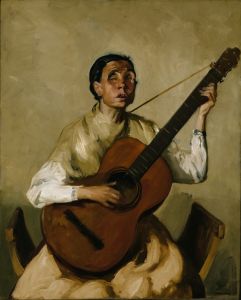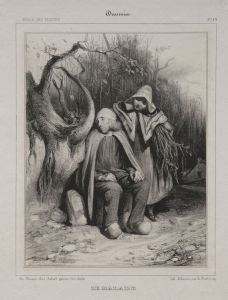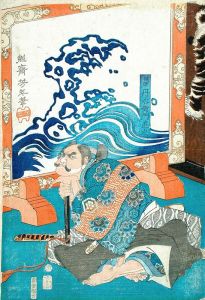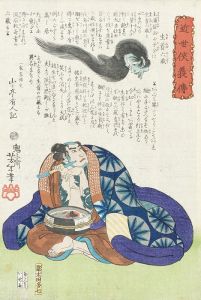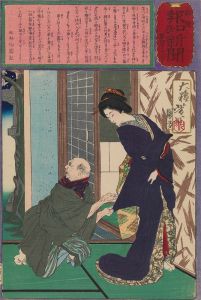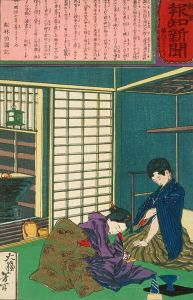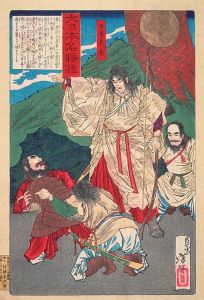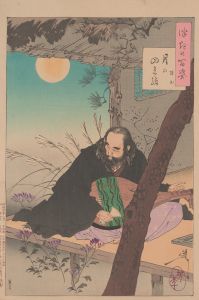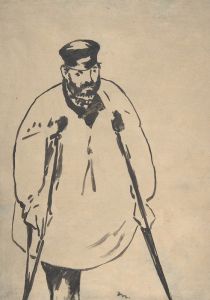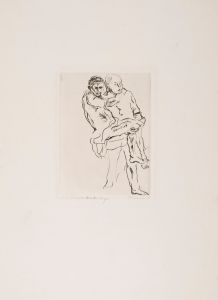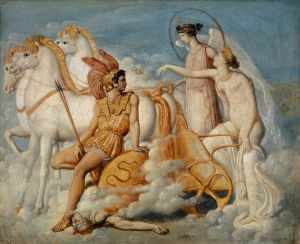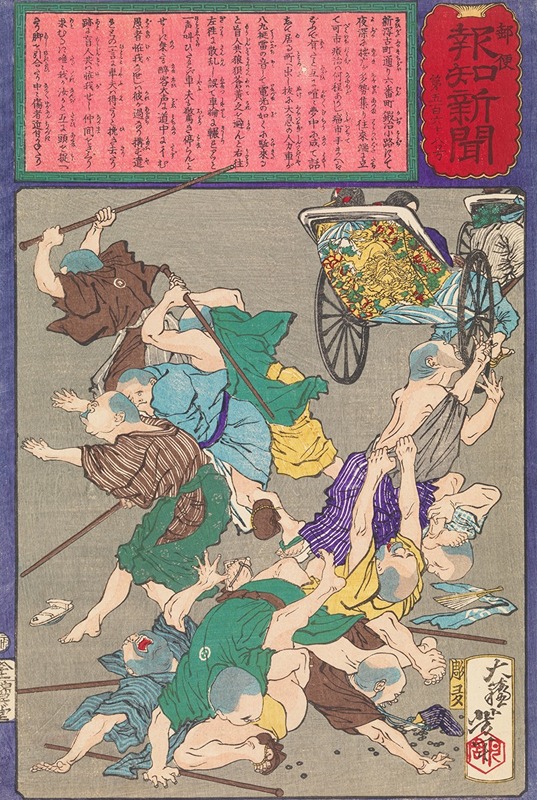
Group of Blind Masseurs in Niigata Injured by a Speeding Rickshaw
A hand-painted replica of Tsukioka Yoshitoshi’s masterpiece Group of Blind Masseurs in Niigata Injured by a Speeding Rickshaw, meticulously crafted by professional artists to capture the true essence of the original. Each piece is created with museum-quality canvas and rare mineral pigments, carefully painted by experienced artists with delicate brushstrokes and rich, layered colors to perfectly recreate the texture of the original artwork. Unlike machine-printed reproductions, this hand-painted version brings the painting to life, infused with the artist’s emotions and skill in every stroke. Whether for personal collection or home decoration, it instantly elevates the artistic atmosphere of any space.
Tsukioka Yoshitoshi (1839–1892) was a renowned Japanese artist known for his work in ukiyo-e, a genre of woodblock prints and paintings that flourished in Japan from the 17th through 19th centuries. Yoshitoshi is often celebrated for his innovative approach to traditional subjects and his ability to capture the complexities of human emotion and the supernatural in his art. One of his notable works is "Group of Blind Masseurs in Niigata Injured by a Speeding Rickshaw," which reflects his interest in contemporary events and social issues of his time.
Yoshitoshi's career spanned a period of significant change in Japan, as the country transitioned from the Edo period to the Meiji era. This was a time of modernization and Western influence, which affected all aspects of Japanese life, including art. Yoshitoshi's work often depicted historical and legendary themes, but he also engaged with the contemporary world, as seen in this particular piece.
"Group of Blind Masseurs in Niigata Injured by a Speeding Rickshaw" is a woodblock print that illustrates a specific incident involving blind masseurs, a common profession for visually impaired individuals in Japan during that era. The print captures the moment of chaos and injury caused by a rickshaw, a mode of transportation that became popular in Japan in the late 19th century. The introduction of rickshaws was part of the broader modernization efforts during the Meiji Restoration, which aimed to transform Japan into a more industrialized nation.
Yoshitoshi's depiction of this event is significant for several reasons. Firstly, it highlights the social issues and challenges faced by marginalized groups, such as the blind masseurs, during a period of rapid change. The print serves as a commentary on the impact of modernization on traditional ways of life and the unintended consequences that often accompany technological and social advancements.
Secondly, the work exemplifies Yoshitoshi's skill in capturing dynamic movement and emotion. The composition likely conveys a sense of urgency and distress, drawing the viewer's attention to the plight of the injured individuals. Yoshitoshi's ability to depict such scenes with empathy and detail is a hallmark of his style, which combines traditional ukiyo-e techniques with a more modern sensibility.
Yoshitoshi's prints, including this one, were produced using the traditional woodblock printing method, which involved carving an image into a block of wood, applying ink, and pressing it onto paper. This technique allowed for the creation of multiple copies of a single image, making art more accessible to the public. Yoshitoshi's work was widely distributed and appreciated during his lifetime, and he remains an influential figure in the history of Japanese art.
In summary, "Group of Blind Masseurs in Niigata Injured by a Speeding Rickshaw" by Tsukioka Yoshitoshi is a poignant example of the artist's engagement with contemporary issues and his mastery of the ukiyo-e form. Through this work, Yoshitoshi not only documents a specific incident but also reflects on the broader societal changes occurring in Japan during the Meiji era.





